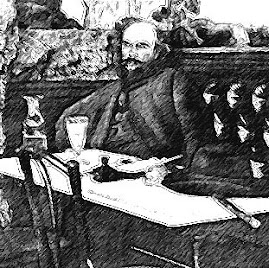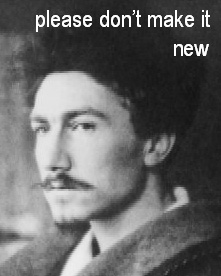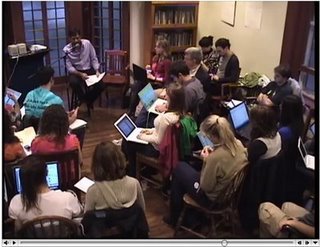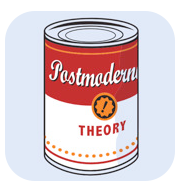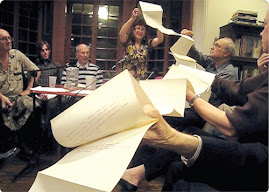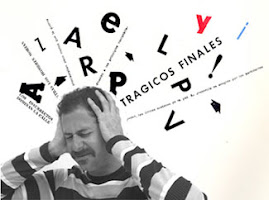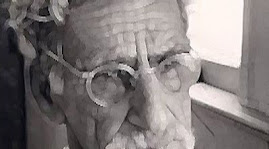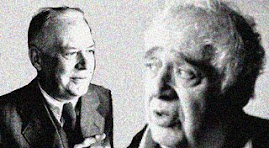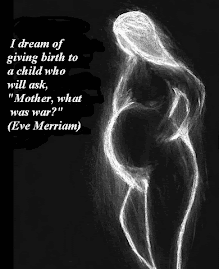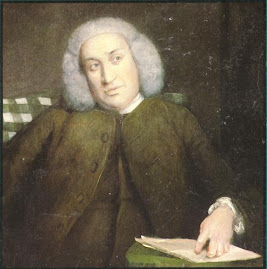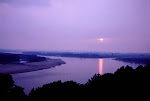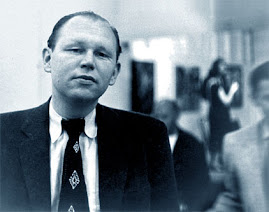
Friday, December 16, 2011
Sunday, December 11, 2011
Bruno Bettelheim's 1976 attack on Terrence Des Pres
 Today I'm making available a PDF copy of Bruno Bettelheim's angry 1976 essay-review on Lina Wurtmuller's Seven Beauties and Terrence Des Pres' The Survivor.
Today I'm making available a PDF copy of Bruno Bettelheim's angry 1976 essay-review on Lina Wurtmuller's Seven Beauties and Terrence Des Pres' The Survivor.
Saturday, December 10, 2011
Stanley Burnshaw at 6 years old
 Many thanks to Susan Copen Oken for providing a copy of this photograph of one of my favorite critic-poet-editors.
Many thanks to Susan Copen Oken for providing a copy of this photograph of one of my favorite critic-poet-editors.
Labels:
Stanley Burnshaw
Sunday, November 27, 2011
Barth vs. Gardner
 Here is a 2004 account of the 1978 verbal battle between John Gardner and John Barth.
Here is a 2004 account of the 1978 verbal battle between John Gardner and John Barth.
Sunday, October 30, 2011
arts graduates doing just fine
From an article by Steven J. Tepper:
A new survey of more than 13,000 arts graduates....
The data come from the Strategic National Arts Alumni Project (SNAAP), a research effort led by Indiana and Vanderbilt Universities, supported by the Surdna Foundation, the National Endowment for the Arts, and others. Respondents were at different stages of their careers. They came from more than 150 arts programs from a diverse set of institutions - from Barnard College to the University of Nebraska to San Francisco State - and answered such questions as: Are you glad you went to art school? What are you doing now? Did you learn anything that is relevant to your current job? Are you satisfied in your work? Are you still making and presenting art?
 One of the most striking findings is that arts graduates have few regrets. Ninety percent say that their overall art school experience was good or excellent. Nearly three quarters would attend the same institution again. If an arts degree were a bill of goods - leading to dead-end careers and a life of struggle - certainly more alumni would second guess their decision to study the arts. This is not the case.
One of the most striking findings is that arts graduates have few regrets. Ninety percent say that their overall art school experience was good or excellent. Nearly three quarters would attend the same institution again. If an arts degree were a bill of goods - leading to dead-end careers and a life of struggle - certainly more alumni would second guess their decision to study the arts. This is not the case.
Part of their satisfaction likely comes from the fact that many graduates end up working in some capacity in their chosen profession. In fact, of those who intended to be artists, seventy-four percent do work as a professional artist at some point in their careers. These graduates are plucky and enterprising - leading the way in our new 21st century contingent economy by fashioning careers through self-employment, working in multiple jobs, starting their own businesses, and working across disciplines.
Arts graduates experience relatively low rates of unemployment --only six percent according to the survey. Only a handful become waiters (three percent work in food services). And the vast majority of graduates, about 73 percent, regardless of whether they work as artists or not, say they are satisfied with the opportunity to work in a job that reflects their interests and personality. In fact, if you really want to stick it to Uncle Henry, tell him that people who work in the arts report some of the highest levels of job satisfaction among all occupations. Clergy and firefighters are more satisfied than artists, but artists are more satisfied than lawyers, financial managers and high school teachers.
True, the median wages of artists lag behind what other professionals make, which is probably why few arts graduates are very satisfied with their income - only about 14 percent of actors, 12 percent of musicians, and eight percent of fine artists. But social science research shows conclusively that higher wages alone have a minimal impact on general happiness. Arts graduates might not be rich, on average, but the vast majority is gainfully employed, piece together satisfying careers, and would go to art school again if given the choice.
So, if you are one of the 120,000 plus arts graduates this year, look Uncle Henry squarely in the eye and tell him that you are off to join the ranks of the creative class. He'll have to follow your interesting and rewarding career on YouTube, Twitter or Facebook, because you may be too busy dancing, writing, performing, producing, designing, teaching or painting for a living to promptly return his call.
Steven J. Tepper is author of the forthcoming book, Not Here, Not Now, Not That!: Protest Over Art and Culture in America (University of Chicago Press 2011). An associate professor of sociology at Vanderbilt University in Nashville, Tennessee, he is the associate director of the Curb Center for Art, Enterprise and Public Policy and senior scholar for the Strategic National Arts Alumni Project.
A new survey of more than 13,000 arts graduates....
The data come from the Strategic National Arts Alumni Project (SNAAP), a research effort led by Indiana and Vanderbilt Universities, supported by the Surdna Foundation, the National Endowment for the Arts, and others. Respondents were at different stages of their careers. They came from more than 150 arts programs from a diverse set of institutions - from Barnard College to the University of Nebraska to San Francisco State - and answered such questions as: Are you glad you went to art school? What are you doing now? Did you learn anything that is relevant to your current job? Are you satisfied in your work? Are you still making and presenting art?
 One of the most striking findings is that arts graduates have few regrets. Ninety percent say that their overall art school experience was good or excellent. Nearly three quarters would attend the same institution again. If an arts degree were a bill of goods - leading to dead-end careers and a life of struggle - certainly more alumni would second guess their decision to study the arts. This is not the case.
One of the most striking findings is that arts graduates have few regrets. Ninety percent say that their overall art school experience was good or excellent. Nearly three quarters would attend the same institution again. If an arts degree were a bill of goods - leading to dead-end careers and a life of struggle - certainly more alumni would second guess their decision to study the arts. This is not the case.Part of their satisfaction likely comes from the fact that many graduates end up working in some capacity in their chosen profession. In fact, of those who intended to be artists, seventy-four percent do work as a professional artist at some point in their careers. These graduates are plucky and enterprising - leading the way in our new 21st century contingent economy by fashioning careers through self-employment, working in multiple jobs, starting their own businesses, and working across disciplines.
Arts graduates experience relatively low rates of unemployment --only six percent according to the survey. Only a handful become waiters (three percent work in food services). And the vast majority of graduates, about 73 percent, regardless of whether they work as artists or not, say they are satisfied with the opportunity to work in a job that reflects their interests and personality. In fact, if you really want to stick it to Uncle Henry, tell him that people who work in the arts report some of the highest levels of job satisfaction among all occupations. Clergy and firefighters are more satisfied than artists, but artists are more satisfied than lawyers, financial managers and high school teachers.
True, the median wages of artists lag behind what other professionals make, which is probably why few arts graduates are very satisfied with their income - only about 14 percent of actors, 12 percent of musicians, and eight percent of fine artists. But social science research shows conclusively that higher wages alone have a minimal impact on general happiness. Arts graduates might not be rich, on average, but the vast majority is gainfully employed, piece together satisfying careers, and would go to art school again if given the choice.
So, if you are one of the 120,000 plus arts graduates this year, look Uncle Henry squarely in the eye and tell him that you are off to join the ranks of the creative class. He'll have to follow your interesting and rewarding career on YouTube, Twitter or Facebook, because you may be too busy dancing, writing, performing, producing, designing, teaching or painting for a living to promptly return his call.
Steven J. Tepper is author of the forthcoming book, Not Here, Not Now, Not That!: Protest Over Art and Culture in America (University of Chicago Press 2011). An associate professor of sociology at Vanderbilt University in Nashville, Tennessee, he is the associate director of the Curb Center for Art, Enterprise and Public Policy and senior scholar for the Strategic National Arts Alumni Project.
Labels:
arts,
higher education
Thursday, October 06, 2011
Dennis Barone
Watch this video and learn a little from Dennis Barone about poetry doings in Philadelphia in the 1970s.
Thursday, May 12, 2011
subscribe to my Jacket2 commentary
This blog has become my Jacket2 commentary. Please subscribe (see above) and you will receive one (just one, never more) email on any day when I post an update.
Friday, April 08, 2011
Jacket2 launches & this blog
 Jacket2 magazine is now launched, I'm happy to say (as its proud publisher). At J2 we have created commentaries and I as publisher will be one of the permanent commentators. Many of the kinds of blog posts I have been posting here since 2007 will now be published in J2. I will continue posting from time to time here, but these will be less frequent and they will focus more on issues and concerns and events not related to the work and purpose of Jacket2. I hope readers of this blog will continue to check here, but I urge people who mostly like what I have to say to go to http://jacket2.org/content/alfilreis and follow me there. Very soon there will be an RSS feed there, and I will transfer my subscription service there too.
Jacket2 magazine is now launched, I'm happy to say (as its proud publisher). At J2 we have created commentaries and I as publisher will be one of the permanent commentators. Many of the kinds of blog posts I have been posting here since 2007 will now be published in J2. I will continue posting from time to time here, but these will be less frequent and they will focus more on issues and concerns and events not related to the work and purpose of Jacket2. I hope readers of this blog will continue to check here, but I urge people who mostly like what I have to say to go to http://jacket2.org/content/alfilreis and follow me there. Very soon there will be an RSS feed there, and I will transfer my subscription service there too.
Labels:
blogging,
Jacket magazine,
Jacket2
Thursday, March 24, 2011
Wednesday, March 23, 2011
I and Albee
 I spent the last two days with Edward Albee, whom I hosted as a "Writers House Fellow." I was able to persuade him to read my favorite speech in all of his 30 plays--the pre-elegy given by A (modeled on Albee's adoptive mother) to the audience at the very end of Three Tall Women. My second favorite (while we're on favorites...): Martin trying to describe his feelings for the goat in The Goat (Or: Who Is Sylvia?), an attempt that breaks down because such longing is an experience of non-relation. He cannot "relate" it because it doesn't not "relate to anything," a foregrounding in a surface of halting words the key double meaning of (in my view) all great writers. Relation = to connect (or--mostly--not) and to describe in words (or--mostly--not).
I spent the last two days with Edward Albee, whom I hosted as a "Writers House Fellow." I was able to persuade him to read my favorite speech in all of his 30 plays--the pre-elegy given by A (modeled on Albee's adoptive mother) to the audience at the very end of Three Tall Women. My second favorite (while we're on favorites...): Martin trying to describe his feelings for the goat in The Goat (Or: Who Is Sylvia?), an attempt that breaks down because such longing is an experience of non-relation. He cannot "relate" it because it doesn't not "relate to anything," a foregrounding in a surface of halting words the key double meaning of (in my view) all great writers. Relation = to connect (or--mostly--not) and to describe in words (or--mostly--not).
Labels:
Edward Albee
Saturday, March 19, 2011
coffee news
 I'm somewhat necessarily in favor the results of this new research on the health of those who drink coffee.
I'm somewhat necessarily in favor the results of this new research on the health of those who drink coffee.
Friday, March 18, 2011
Rufus Wainwright at the Writers House
 Had the pleasure of hanging out with Rufus Wainwright yesterday afternoon and evening at the Writers House. Anthony DeCurtis, above left, conducted a beautiful interview/conversation with him for an hour in front of a small audience of 50.
Had the pleasure of hanging out with Rufus Wainwright yesterday afternoon and evening at the Writers House. Anthony DeCurtis, above left, conducted a beautiful interview/conversation with him for an hour in front of a small audience of 50.
Saturday, March 12, 2011
surrealism's anarchic tendencies
 From an interview with Gene Tanta: "Dada interests me more than Surrealism. However, within Surrealism, its anarchic tendencies seem more interesting to me than its fetishistic tendencies (which American marketing has employed with such gusto). For instance, Breton had another concept called “convulsive beauty” which transgresses the boundaries of formal logic as well as the canonical categories of Beauty. Convulsive beauty, by retooling the pathology of hysteria, queers aesthetic and political norms." For more, click here.
From an interview with Gene Tanta: "Dada interests me more than Surrealism. However, within Surrealism, its anarchic tendencies seem more interesting to me than its fetishistic tendencies (which American marketing has employed with such gusto). For instance, Breton had another concept called “convulsive beauty” which transgresses the boundaries of formal logic as well as the canonical categories of Beauty. Convulsive beauty, by retooling the pathology of hysteria, queers aesthetic and political norms." For more, click here.
Labels:
Gene Tata,
surrealism
Tuesday, March 08, 2011
'Shoah' in Iran (AP story)
Epic Holocaust film 'Shoah' to be screened in Iran via satellite TV
Filmmaker Claude Lanzmann's renowned nine-plus-hour film includes testimony from concentration-camp survivors and employees about the slaughter of millions of Jews in Europe during World War II.
By The Associated Press
PARIS - An epic French documentary about the Holocaust, dubbed into Farsi, is to be broadcast on a satellite channel in Iran as part of a campaign to promote understanding between Jews and Muslims and to fight Holocaust denial.
 Filmmaker Claude Lanzmann's renowned nine-plus-hour film "Shoah" includes testimony from concentration-camp survivors and employees about the slaughter of millions of Jews in Europe during World War II.
Filmmaker Claude Lanzmann's renowned nine-plus-hour film "Shoah" includes testimony from concentration-camp survivors and employees about the slaughter of millions of Jews in Europe during World War II.
The Aladdin Project, a Paris-based group, said the film would be shown starting yesterday over the next several days on the large Los Angeles-based satellite channel Pars. Iranian President Mahmoud Ahmadinejad has questioned historical accounts of the Holocaust, and called for Israel's destruction.
The Aladdin Project tried twice to get a green light from Iranian authorities to hold a press conference in Tehran about the killing of Jews during World War II, but received no response, Abe Radkin, the group's executive director, told The Associated Press.
"If the Iranian government agrees to broadcast [the film] on a public channel, we would welcome it," he said.
TV satellite dishes are outlawed in Iran, but enforcement of the ban is spotty. Many people no longer worry about concealing the dishes. In recent months, authorities have targeted some sections of Tehran to remove dishes, but the sweeps appear to be isolated.
The Aladdin Project has also dubbed the film into Arabic and Turkish. It will be shown in Turkey at the Istanbul film festival next month, then a week later on the TRT channel, Radkin said.
The group had planned to broadcast the film on an Egyptian channel, but has put the plans on hold amid unrest that ousted longtime President Hosni Mubarak.
"We will wait a bit so that the political situation in Arab countries allows the broadcast of such a film," he said. "We need a peaceful atmosphere to concentrate on this message."
The Aladdin Project has backing from UNESCO, the educational and cultural arm of the United Nations.
Filmmaker Claude Lanzmann's renowned nine-plus-hour film includes testimony from concentration-camp survivors and employees about the slaughter of millions of Jews in Europe during World War II.
By The Associated Press
PARIS - An epic French documentary about the Holocaust, dubbed into Farsi, is to be broadcast on a satellite channel in Iran as part of a campaign to promote understanding between Jews and Muslims and to fight Holocaust denial.
 Filmmaker Claude Lanzmann's renowned nine-plus-hour film "Shoah" includes testimony from concentration-camp survivors and employees about the slaughter of millions of Jews in Europe during World War II.
Filmmaker Claude Lanzmann's renowned nine-plus-hour film "Shoah" includes testimony from concentration-camp survivors and employees about the slaughter of millions of Jews in Europe during World War II.The Aladdin Project, a Paris-based group, said the film would be shown starting yesterday over the next several days on the large Los Angeles-based satellite channel Pars. Iranian President Mahmoud Ahmadinejad has questioned historical accounts of the Holocaust, and called for Israel's destruction.
The Aladdin Project tried twice to get a green light from Iranian authorities to hold a press conference in Tehran about the killing of Jews during World War II, but received no response, Abe Radkin, the group's executive director, told The Associated Press.
"If the Iranian government agrees to broadcast [the film] on a public channel, we would welcome it," he said.
TV satellite dishes are outlawed in Iran, but enforcement of the ban is spotty. Many people no longer worry about concealing the dishes. In recent months, authorities have targeted some sections of Tehran to remove dishes, but the sweeps appear to be isolated.
The Aladdin Project has also dubbed the film into Arabic and Turkish. It will be shown in Turkey at the Istanbul film festival next month, then a week later on the TRT channel, Radkin said.
The group had planned to broadcast the film on an Egyptian channel, but has put the plans on hold amid unrest that ousted longtime President Hosni Mubarak.
"We will wait a bit so that the political situation in Arab countries allows the broadcast of such a film," he said. "We need a peaceful atmosphere to concentrate on this message."
The Aladdin Project has backing from UNESCO, the educational and cultural arm of the United Nations.
Thursday, March 03, 2011
Tuesday, March 01, 2011
Vanessa Place, March 24
 Vanessa Place will be at the Writers House on March 24. Listen here for an announcement about the event.
Vanessa Place will be at the Writers House on March 24. Listen here for an announcement about the event.
Labels:
conceptual poetics,
Vanessa Place
Saturday, February 26, 2011
Susan Howe and Jonathan Edwards
 Susan Howe in front of an image of a Jonathan Edwards manuscript. The event took place at the Graduate Center of the City University of New York. Photograph by Lawrence Schwartzwald. Lawrence puts up many of his photographs of poets now on his Facebook page.
Susan Howe in front of an image of a Jonathan Edwards manuscript. The event took place at the Graduate Center of the City University of New York. Photograph by Lawrence Schwartzwald. Lawrence puts up many of his photographs of poets now on his Facebook page.
Friday, February 25, 2011
Jacket2, "pretty much the most robust place"
 In the new issue of the Pennsylvania Gazette, we find a nice article about Jacket2 by Sam Hughes. Here's an excerpt, quoting me:
In the new issue of the Pennsylvania Gazette, we find a nice article about Jacket2 by Sam Hughes. Here's an excerpt, quoting me:“The poetry world is huge, vibrant, full of odd and interesting and brilliant people all over the world—and they follow everything in the field. So while it might seem like the announcement of a change in a magazine is not going to rock anybody’s world, it did. There was a big response to it, and almost all of it positive.”
Jacket2 is going to be “pretty much the most robust place where you can look and find stuff about poetry—modern, contemporary; particularly contemporary,” he adds. Including, of course, poems. He describes it as a “fully integrated site” that will play off the raw material of spoken poetry provided by PennSound. “Between the two, we’ll have a whole lot covered.”
And here is a link to the whole article.
Labels:
Jacket2,
John Tranter,
Penn
Thursday, February 24, 2011
Bernadette Mayer
 Lawrence Schwartzwald took this photograph of Bernadette Mayer at a reading last night at the Poetry Project at St. Marks Church.
Lawrence Schwartzwald took this photograph of Bernadette Mayer at a reading last night at the Poetry Project at St. Marks Church.
Labels:
Bernadette Mayer,
Lawrence Schwartzwald,
photography
Wednesday, February 23, 2011
new review of my book

Adam Piette of the University of Sheffield has published a review of my Counter-Revolution of the Word: The Conservative Attack on Modern Poetry in the recent issue of Modernism/Modernity. Here is a PDF copy of the review.
Labels:
antimodernism
Saturday, February 19, 2011
Kramer reads Whitman's "Song of Myself"
 Back in 1974 the poet Aaron Kramer, long a supporter of Walt Whitman's importance, recorded himself performing "Song of Myself." Kramer's daughter found this recording, and many others, in boxes of cassette tapes in her father's house after his death. PennSound's Kramer author page includes many of these recordings, including the Whitman. We've of course thus added Whitman to our growing "PennSound Classics" page, along with newly acquired recordings of Poe, Chaucer, Swift, Wordsworth, Fitzgerald and others. Here is your link to Kramer reading Walt, and here is the link to PennSound Classics.
Back in 1974 the poet Aaron Kramer, long a supporter of Walt Whitman's importance, recorded himself performing "Song of Myself." Kramer's daughter found this recording, and many others, in boxes of cassette tapes in her father's house after his death. PennSound's Kramer author page includes many of these recordings, including the Whitman. We've of course thus added Whitman to our growing "PennSound Classics" page, along with newly acquired recordings of Poe, Chaucer, Swift, Wordsworth, Fitzgerald and others. Here is your link to Kramer reading Walt, and here is the link to PennSound Classics.
Labels:
Aaron Kramer,
PENNsound,
Walt Whitman
Thursday, February 17, 2011
Mark Nowak
 Today PennSound launched its newest author page - for recordings of Mark Nowak. Included here is an 18-minute reading from Coal Mountain Elementary - recorded at Mills College in 2009.
Today PennSound launched its newest author page - for recordings of Mark Nowak. Included here is an 18-minute reading from Coal Mountain Elementary - recorded at Mills College in 2009.
Labels:
coal mining,
Mark Nowak,
Mils College,
PENNsound
Saturday, February 12, 2011
Will Alexander on Rothko

Will Alexander reads "Rothko" in 1993: MP3. And then he takes a minute to discuss that poem. (These sound files are part of a reading recorded in 1993, segmented for the first time today. These and more are available on Alexander's PennSound page.)
Labels:
Mark Rothko,
PENNsound,
Will Alexander
Thursday, February 10, 2011
anti-leftist anti-postmodernism
When Jesse V. Drury tweeted early this morning (before 7 am) and "at"-ed me (hailed me with an "@afilreis," I mean), I followed the link. Jesse wrote: "Poetry needs form to be relevant" and "Anti-leftist anti-postmodernists?" and "Go get 'em @afilreis." I don't know, at the moment at least, about going to get 'em, but I did follow the link and found myself at the Poetry Foundation's Harriet blog (which is now a commentary space) and found this summary of and quotation from a conservative web site. Here is the Harriet comment in full:
Criticism
Form and Nature
It’s not everyday the website for a right-wing think tank publishes an article on Flarf. Micah Mattix’s article, in The Public Discourse, the blog of Princeton’s Witherspoon Institute, argues for a rejection of the modernist / postmodernist tendency to experiment with form for the sake of new models of reading and readership, and a return to the “natural order” of “formal” poetry. Flarf receives special scorn because it does not reflect such a natural order—is that because of its formal properties, or because of its content, which is gleaned from that most seemingly unnatural of all spaces, the web? Mattix points out (which everyone admits anyway) that all poetry is formal, and there is no such thing as an unformed poem. But which forms, precisely, are “natural?” Which are not? And where (geographically, historically) do these “natural” forms come from? Well, there’s no history in the article, so who knows. But Mattix, who seemingly hasn’t read anything ever written about poetry or aesthetics, does have some major advice for poets:
Criticism
Form and Nature
It’s not everyday the website for a right-wing think tank publishes an article on Flarf. Micah Mattix’s article, in The Public Discourse, the blog of Princeton’s Witherspoon Institute, argues for a rejection of the modernist / postmodernist tendency to experiment with form for the sake of new models of reading and readership, and a return to the “natural order” of “formal” poetry. Flarf receives special scorn because it does not reflect such a natural order—is that because of its formal properties, or because of its content, which is gleaned from that most seemingly unnatural of all spaces, the web? Mattix points out (which everyone admits anyway) that all poetry is formal, and there is no such thing as an unformed poem. But which forms, precisely, are “natural?” Which are not? And where (geographically, historically) do these “natural” forms come from? Well, there’s no history in the article, so who knows. But Mattix, who seemingly hasn’t read anything ever written about poetry or aesthetics, does have some major advice for poets:
What is needed now is not more ideological poetry but a new discovery of the “fundamental and perennial rules” of poetry. Without rules, there is no order and, therefore, no recognition. In the end, it is this recognition that makes experiencing art worthwhile. Via complex forms, we recognize the paradoxes of our present existence, or our fractured, conflicting selves, our yearning for coherence, transcendence, and closure, and the infinite beauty of the Creator.
If poetry is ever to regain an audience, it must stop resisting—because of dubious egalitarian, ideological reasons—the hierarchies of complex form. Only then can it again become relevant.
Labels:
antimodernism,
conservatism,
flarf
Wednesday, February 09, 2011
Tuesday, February 08, 2011
Sunday, February 06, 2011
Saturday, February 05, 2011
cartoon from George Lichty's "Is Party Line, Comrade!" series
 The "Is Party Line, Comrade!" series was selected for republication in the Conservative Book Club's Omnibus, volume 6 which included Elizabeth Bentley's Out of Bondage, Richard Weaver's Visions of Order, and Ludwig von Mises's The Anti-Capitalistic Mentality.
The "Is Party Line, Comrade!" series was selected for republication in the Conservative Book Club's Omnibus, volume 6 which included Elizabeth Bentley's Out of Bondage, Richard Weaver's Visions of Order, and Ludwig von Mises's The Anti-Capitalistic Mentality.The signs in the cartoon read as follows: "Commisar of Music Culture (Peoples Div.)" [on the door]; "Musicians of the World arise! -- Make Sour Notes" [on the wall, middle]; "Capita[list] Be-bo[p] Must Go" [behind the middle poster]; "world No. 1 'Boogie' Man" [on wall, right, under sketch of portrait].
The caption: "Is symphony I am composing from glorious sounds of Soviet industry, comrade commisar... the din of hammers, the clash of machinery, the roar of furnaces, the groans of the populace..."
Labels:
anticommunism,
cartoon,
communism,
Soviet Union
Wednesday, February 02, 2011
John Ashbery performs Wallace Stevens
 In October of 1989, John Ashbery went to St. John's the Divine Cathedral in New York to be part of the induction of Wallace Stevens at the Poets' Corner. There was a vespers service and Ashbery read six sections of Stevens's "An Ordinary Evening in New Haven." Imagine that--that poem read at a vespers service! Anyway, I certainly don't know of another recording of Ashbery performing Stevens. Stevens was a fairly bad reader of his own poems. Ashbery is deemed by many to be an indifferent reader of his poems. (I don't agree, but understand the point.) But here, reading Stevens, Ashbery is marvelous. Here is a 7-minute recording of sections 3, 5, 12, 17, 18 and 30 of the Stevens poem that comes closest to real serial writing (seriality at the level of the section, anyway).
In October of 1989, John Ashbery went to St. John's the Divine Cathedral in New York to be part of the induction of Wallace Stevens at the Poets' Corner. There was a vespers service and Ashbery read six sections of Stevens's "An Ordinary Evening in New Haven." Imagine that--that poem read at a vespers service! Anyway, I certainly don't know of another recording of Ashbery performing Stevens. Stevens was a fairly bad reader of his own poems. Ashbery is deemed by many to be an indifferent reader of his poems. (I don't agree, but understand the point.) But here, reading Stevens, Ashbery is marvelous. Here is a 7-minute recording of sections 3, 5, 12, 17, 18 and 30 of the Stevens poem that comes closest to real serial writing (seriality at the level of the section, anyway).
Labels:
Ashbery,
Wallace Stevens
Tuesday, February 01, 2011
PennSound podcast on letterpress publishing
 At left you see Charles Alexander and colleagues working on a publication of Chax Press, which Charles has been directing for the past 27 years. Charles was at the Writers House today, to give a reading and be part of a recording of an episode of PoemTalk. We took a few minutes to talk about letterpresses and other alternative presses--and some important twentieth-century figures in letterpress publishing. This discussion is episode #20 in the PennSound Podcast series.
At left you see Charles Alexander and colleagues working on a publication of Chax Press, which Charles has been directing for the past 27 years. Charles was at the Writers House today, to give a reading and be part of a recording of an episode of PoemTalk. We took a few minutes to talk about letterpresses and other alternative presses--and some important twentieth-century figures in letterpress publishing. This discussion is episode #20 in the PennSound Podcast series.
Labels:
Charles Alexander,
letterpress,
PENNsound,
podcasts
Monday, January 31, 2011
new PoemTalk out now
 Today we are releasing PoemTalk's 40th episode - on Dementia Blog by Susan Schultz. Above: Susan and her mother.
Today we are releasing PoemTalk's 40th episode - on Dementia Blog by Susan Schultz. Above: Susan and her mother.
Labels:
dementia,
memory,
Susan Schultz
Sunday, January 30, 2011
Thom Donovan
 Thom Donovan at the Bowery Poetry Club yesterday. Thom and Sarah Wintz curated a Segue Reading Series event there. Photo by Lawrence Schwartzwald (for more on Lawrence, click on the tag below).
Thom Donovan at the Bowery Poetry Club yesterday. Thom and Sarah Wintz curated a Segue Reading Series event there. Photo by Lawrence Schwartzwald (for more on Lawrence, click on the tag below).
Saturday, January 29, 2011
new audio: Shakespeare's sonnets

We at PennSound are pleased to announce the newest addition to the PennSound "Classics" page: John Richetti reads an ample selection of Shakespeare's sonnets.
Labels:
PENNsound,
sonnet,
William Shakespeare
Friday, January 28, 2011
baseball companion
 I have an essay in the forthcoming Cambridge Companion to Baseball. Pre-order your copy here.
I have an essay in the forthcoming Cambridge Companion to Baseball. Pre-order your copy here.
Labels:
baseball,
baseball fan
on Feb 9 we remember Bob Lucid again

Philip Lopate comes to the Writers House on February 9 - for our annual Bob Lucid Memorial Program. Listen here for more.
Labels:
Kelly Writers House,
Philip Lopate,
Robert Lucid
Thursday, January 27, 2011
Jerome Rothenberg: the holocaust & why he writes poetry
When Jerome Rothenberg visited Auschwitz, he experienced the keenest sense he had felt to that date that he should be writing poetry.
Labels:
holocaust,
Jerome Rothenberg
Wednesday, January 26, 2011
duet of Cheevers

Here is a link to the March 14, 1977 Newsweek interview of John Cheever conducted by his daughter Susan.
Labels:
interview,
John Cheever,
Susan Cheever
ends from Ez
 "Recomposition of Gaudier-Brzeska's Portrait of Pound" (c) 1988, by Anne Tardos, used as the jacket of Jackson Mac Low's book, Words nd Ends from Ez, published by Avenue B in 1989.
"Recomposition of Gaudier-Brzeska's Portrait of Pound" (c) 1988, by Anne Tardos, used as the jacket of Jackson Mac Low's book, Words nd Ends from Ez, published by Avenue B in 1989.
Labels:
Anne Tardos,
Ezra Pound,
Jackson Mac Low
Sunday, January 23, 2011
poem in English & Chinese by Yanrong
Install the Flash plugin to watch this video.
The Chinese poet Yanrong performs his poem, "Prophecy and Carnival," in Chinese, while Charles Bernstein reads an English translation. On December 9, 2010, a group of poets from Wuhan, China, visited the Writers House: Liang Biwen, Liu Yishan, Chen Ying-Song, Tian He, Wang Xinmin, Ke Yumin, Li Ming, Hu Xiang, Liu An. Several American poets read their work in English and listened while the visiting poets read their poems in Chinese.
north of north of invention
 After two fabulous days in Philly, the North of Invention troupe moved to New York, where they presented at Poets House. Lawrence Schwartzwald was there and took some great photographs, including this one of Christian Bok and M. NourbeSe Philip. (Photo used by permission of Lawrence Schwartzwald; for more, click on the tag below.)
After two fabulous days in Philly, the North of Invention troupe moved to New York, where they presented at Poets House. Lawrence Schwartzwald was there and took some great photographs, including this one of Christian Bok and M. NourbeSe Philip. (Photo used by permission of Lawrence Schwartzwald; for more, click on the tag below.)
Friday, January 21, 2011
Nardone/Dowling at Lemon Hound on "North of Invention"
Over at Lemon Hound, Michael Nardone has published an interview with Sarah Dowling, creator of the "North of Invention" gathering here in Philadelphia and (starting tomorrow) in New York. Here's how the conversation begins:
Michael Nardone:
Sarah, you've arranged a great group of poets to come down to Philly and New York for North of Invention, a mixture of readings, performances and discussions on poetics. Can you talk about your curation: why these poets? where are there points of correspondence or affinity between them? where are there moments of these poets individually charting out new spaces for practice?
Sarah Dowling:
Our initial idea in planning North of Invention was to feature poets who had not read in the U.S. ever — or at least not ever in the past five years, or at least not on the East Coast in the past five years. As you can imagine, this evolved somewhat as the planning went on. Charles Bernstein, Stephen Motika and I all had particular folks in mind when we set that curatorial constraint, and I'm pleased to say that many from our initial imaginary cohort are indeed featured in the festival. However, we had to balance this ideal with the need to attract an audience, and therefore to have some figures more recognizable to U.S. audiences on our roster. We also wanted to have a good balance of emerging and established writers, writers from across Canada, and writers representing various social and aesthetic contingencies. In the end, some of the poets we had initially wanted to feature also had to withdraw their participation for personal reasons or because conflicts arose in their schedules, so to a large extent the selection of poets depended on chance: who was available in cold, dark January.
art on the Neversink River
 CALL FOR PROPOSALS FOR SUMMER 2011:
CALL FOR PROPOSALS FOR SUMMER 2011: THE STREAM PROJECT: ART ALONG THE NEVERSINK RIVER
In partnership with the Roundout & Neversink Stream Management Program of the Sullivan County Soil & Water Conservation District, the Wildcat Fellowship Program seeks projects of high artistic merit that relate to the Neversink River and its mountainous, forested surroundings.
The successful project will raise awareness of one or more of the following:
--Changing weather patterns that increase flows (winter and fall floods)
--Invasive plants that threaten forest health, water quality and fish habitat
--The value of the wilderness aesthetic (compared to the "tame" landscape)
--The beauty of log jams and gravel bars that move with high water
--Local history as it relates to the Neversink River
We offer a residency of two weeks with accommodation in a guest house, use of a small studio barn and a bicycle. We will provide appropriate publicity and a stipend of $1,000 to cover art supplies and living expenses such as for food suited to the artist's own preparation in the guest-house kitchen. For projects involving any of the construction trades, such as carpentry, a technical consultant is available.
Two-page proposals will be accepted and reviewed between now and February 15th, 2011. The selected fellowship recipient will be notified in early April, 2011.
*Project Parameters*
We particularly seek mixed-media works that are site-specific to the Neversink River, which runs from the Catskill Mountains to the Delaware River and is captured in a reservoir to become drinking water for New York City. The site will be selected in consultation with local landowners and/or municipalities.
The proposal will be for a work that:
--uses natural materials, though perhaps not exclusively
--raises consciousness of the significance and beauty of the environment and the importance of water quality and purity
--may be interactive
--does not harm the environment and is biodegradable yet leaves a presence at the site and in the community
--produces documentation that is suitable for exhibition off-site
--contains a community-building component that invites local participation
The artist is expected to be in residence the full two weeks, is responsible for transportation to and from Claryville, and must be available for a public presentation of the work at the installation site which will include a brief artist's talk with Q-and-A. The artist must also be available for the opening and closing of an exhibit of the documentation.
The artist is responsible for installation and take-down of this exhibit as well as for the creation of necessary signage and wall texts.
TO SUBMIT: Email the following by February 15, 2011 to Curator Patricia Eakins at fabulara@earthlink.net: (1) link to your website with images of your work, (2) two-page proposal, (3) project abstract of 100 words, (4) artist statement, (5) curriculum vitae. All documents must be MS Word documents or PDFs. No phone calls please.
Karen Rauter, Stream Program Coordinator
Rondout & Neversink Basins
Tel. 845-985-2581
catskillstreams.org
the last ancient Greek poet
 In 2009, at the University of Michigan, George Economou delivered a performance under the appropriate title, "The Least Ancient Greek Poet." He reads from Ananios of Kleitor and then talks about the process of writing it. We at PennSound are making this recording available today for the first time. George was born in 1934 in Great Falls, Montana, the son of two Greek immigrants. He is know for his early affiliations with Deep Image poets, and, to be sure, for his 41 years of teaching at the Brooklyn center for Long Island University. He was a founding editor of The Chelsea Review (1957–60) and co-founding editor of Trobar and Trobar Books (1960–64) with Robert Kelly. It was through Kelly, I'm guessing, that he met Jerome Rothenberg. We at the Writers House glad that George and Rochelle Owens moved to Philly some few years ago and that we see them often. George called this session "the least" but I like pondering the idea of George himself as the last of the ancient Greeks. Long live George!
In 2009, at the University of Michigan, George Economou delivered a performance under the appropriate title, "The Least Ancient Greek Poet." He reads from Ananios of Kleitor and then talks about the process of writing it. We at PennSound are making this recording available today for the first time. George was born in 1934 in Great Falls, Montana, the son of two Greek immigrants. He is know for his early affiliations with Deep Image poets, and, to be sure, for his 41 years of teaching at the Brooklyn center for Long Island University. He was a founding editor of The Chelsea Review (1957–60) and co-founding editor of Trobar and Trobar Books (1960–64) with Robert Kelly. It was through Kelly, I'm guessing, that he met Jerome Rothenberg. We at the Writers House glad that George and Rochelle Owens moved to Philly some few years ago and that we see them often. George called this session "the least" but I like pondering the idea of George himself as the last of the ancient Greeks. Long live George!
Labels:
George Economou
Thursday, January 20, 2011
north of invention
 At the end of his reading tonight at the Kelly Writers House, Fred Wah was joined by Nicole Brossard. They read a poem of hers, together, she reading, of course, the original French, while he read an English translation. A wonderful way to end a long and continuously interesting day of talks and readings, day one of the "North of Invention" program. Be sure tomorrow--Friday, January 21--to watch the live video stream, starting at 10:30 AM eastern time.
At the end of his reading tonight at the Kelly Writers House, Fred Wah was joined by Nicole Brossard. They read a poem of hers, together, she reading, of course, the original French, while he read an English translation. A wonderful way to end a long and continuously interesting day of talks and readings, day one of the "North of Invention" program. Be sure tomorrow--Friday, January 21--to watch the live video stream, starting at 10:30 AM eastern time.
Labels:
Fred Wah,
Kelly Writers House,
Nicole Broussard
Tuesday, January 18, 2011
Albee's plays on YouTube
 Video clips from performances of Edward Albee's plays have surfaced here and there on YouTube, unsurprisingly. Despite YouTube's search mechanism, it's not so easy, actually, to find all these. That's why I'm grateful to Julia Nelson, who went through as many as she could find and organized them, adding some notes. I put her findings into a crude web page, with live links. Here is your link to that document.
Video clips from performances of Edward Albee's plays have surfaced here and there on YouTube, unsurprisingly. Despite YouTube's search mechanism, it's not so easy, actually, to find all these. That's why I'm grateful to Julia Nelson, who went through as many as she could find and organized them, adding some notes. I put her findings into a crude web page, with live links. Here is your link to that document.
Labels:
Edward Albee,
theater
Monday, January 17, 2011
digital humanites

I'm pleased that on nicomachus.net, a digital humanities blog, I'm described today as a "tireless purveyor of recorded, digitized, and archived poetry readings."
Labels:
blogging,
digital humanities
Friday, January 14, 2011
introduction to 1960
My introduction to the recent symposium on poetry in 1960. It begins with a look at a late late 1959 essay by Stanley Kunitz predicting that the 1960s will in poetry be a time of consolidation and not of experiment--that experiment was all exhausted, played out.
Labels:
1960,
Kelly Writers House
Semina Circle and Meltzer
 At left is an album cover: David Meltzer's jazz poems, 1958.
At left is an album cover: David Meltzer's jazz poems, 1958.Meltzer published The Clown in 1960. It was issued by the Semina press. Jed Birmingham on REALITYSTUDIO.org has written about the Semina Circle and Meltzer, thus:
This mini-archive sat in my bookshelf for a couple of years untouched until January of this year when I purchased Wallace Berman and the Semina Circle. This book accompanied an exhibit relating to the literature and art surrounding Berman until his untimely death in 1976. This exhibit is currently touring the West Coast and will make its way to New York City (New York University to be exact) in January 2007. A complete run of Semina Magazine represents the Holy Grail for me as a collector. An early fragment of Naked Lunch (Pantapon Rose) appeared in Semina 4. As I have mentioned before, Semina is the epitome of the little magazine as art object. David Meltzer appeared in Semina as well. In fact, the entire issue of Semina 6 features Meltzer’s The Clown.
Unlike Burroughs, Meltzer was an intimate member of the Berman Circle. He published a few books including Luna with Black Sparrow. In the late 1960s, he wrote a series of avant garde pornographic novels for Essex House. At the same time, he fronted the psychedelic band Serpent Power. In 2004, Meltzer published Beat Thing. He also edited two collections of valuable interviews entitled San Francisco Poets and San Francisco Beat. A collection of Meltzer’s papers are at Washington University.
Labels:
1960,
David Melzer,
Semina
Wednesday, January 12, 2011
newly segmented reading by Olson from Maximus poems
 Click on the image above for a larger view. We at PennSound are pleased to say that Charles Olson's reading from the Maximus poems at Beloit College has now been segmented. He read for 50 minutes total from many sections of the long work. Here is your link.
Click on the image above for a larger view. We at PennSound are pleased to say that Charles Olson's reading from the Maximus poems at Beloit College has now been segmented. He read for 50 minutes total from many sections of the long work. Here is your link.
Labels:
Beloit College,
Charles Olson,
Maximus Poems,
PENNsound
Tuesday, January 11, 2011
generation refusing the label of "lost"
New York Times Magazine
November 16, 1952
"This Is the Beat Generation"
A 26-year-old defines his times.
By CLELLON HOLMES
 The wild boys of today are not lost. Their flushed, often scoffing, always intent faces elude the word, and it would sound phony to them. For this generation conspicuously lacks that eloquent air of bereavement which made so many of the exploits of the Lost Generation symbolic actions. Furthermore, the repeated inventory of shattered ideals, and the laments about the mud in moral currents, which so obsessed the Lost Generation does not concern young people today. They take it frighteningly for granted. They were brought up in these ruins and no longer notice them. They drink to "come down" or "get high," not to illustrate anything. Their excursions into drugs or promiscuity come out of curiosity, not disillusionment.
The wild boys of today are not lost. Their flushed, often scoffing, always intent faces elude the word, and it would sound phony to them. For this generation conspicuously lacks that eloquent air of bereavement which made so many of the exploits of the Lost Generation symbolic actions. Furthermore, the repeated inventory of shattered ideals, and the laments about the mud in moral currents, which so obsessed the Lost Generation does not concern young people today. They take it frighteningly for granted. They were brought up in these ruins and no longer notice them. They drink to "come down" or "get high," not to illustrate anything. Their excursions into drugs or promiscuity come out of curiosity, not disillusionment.
Only the most bitter among them would call their reality a nightmare and protest that they have indeed lost something, the future. But ever since they were old enough to imagine one, that has been in jeopardy anyway. The absence of personal and social values is to them, not a revelation shaking the ground beneath them, but a problem demanding a day-to-day solution. How to live seems to them much more crucial than why. And it is precisely at this point that the copywriter and the hot-rod driver meet, and their identical beatness becomes significant, for, unlike the Lost Generation, which was occupied with the loss of faith, the Beat Generation is becoming more and more occupied with the need for it. As such, it is a disturbing illustration of Voltaire's reliable old joke: "If there were no God, it would be necessary to invent Him." Not content to bemoan His absence, they are busily and haphazardly inventing totems for Him on all sides...
In the wildest hipster, making a mystique of bop, drugs and the night life, there is no desire t shatter the drugs and the night life, there is no desire to shatter the "square" society in which he lives, only to elude it. To get on a soapbox or write a manifesto would seem to him absurd.... Equally, the young Republican, though often seeming to hold up Babbitt as his culture hero, is neither vulgar nor materialistic, as Babbitt was. He conforms because he believes it Is socially practical, not necessarily virtuous. Both positions, however, are the result of more or less the same conviction -- namely that the valueless abyss of modern life is unbearable.
In the photo above, Clellon Holmes is standing at far left.
November 16, 1952
"This Is the Beat Generation"
A 26-year-old defines his times.
By CLELLON HOLMES
 The wild boys of today are not lost. Their flushed, often scoffing, always intent faces elude the word, and it would sound phony to them. For this generation conspicuously lacks that eloquent air of bereavement which made so many of the exploits of the Lost Generation symbolic actions. Furthermore, the repeated inventory of shattered ideals, and the laments about the mud in moral currents, which so obsessed the Lost Generation does not concern young people today. They take it frighteningly for granted. They were brought up in these ruins and no longer notice them. They drink to "come down" or "get high," not to illustrate anything. Their excursions into drugs or promiscuity come out of curiosity, not disillusionment.
The wild boys of today are not lost. Their flushed, often scoffing, always intent faces elude the word, and it would sound phony to them. For this generation conspicuously lacks that eloquent air of bereavement which made so many of the exploits of the Lost Generation symbolic actions. Furthermore, the repeated inventory of shattered ideals, and the laments about the mud in moral currents, which so obsessed the Lost Generation does not concern young people today. They take it frighteningly for granted. They were brought up in these ruins and no longer notice them. They drink to "come down" or "get high," not to illustrate anything. Their excursions into drugs or promiscuity come out of curiosity, not disillusionment.Only the most bitter among them would call their reality a nightmare and protest that they have indeed lost something, the future. But ever since they were old enough to imagine one, that has been in jeopardy anyway. The absence of personal and social values is to them, not a revelation shaking the ground beneath them, but a problem demanding a day-to-day solution. How to live seems to them much more crucial than why. And it is precisely at this point that the copywriter and the hot-rod driver meet, and their identical beatness becomes significant, for, unlike the Lost Generation, which was occupied with the loss of faith, the Beat Generation is becoming more and more occupied with the need for it. As such, it is a disturbing illustration of Voltaire's reliable old joke: "If there were no God, it would be necessary to invent Him." Not content to bemoan His absence, they are busily and haphazardly inventing totems for Him on all sides...
In the wildest hipster, making a mystique of bop, drugs and the night life, there is no desire t shatter the drugs and the night life, there is no desire to shatter the "square" society in which he lives, only to elude it. To get on a soapbox or write a manifesto would seem to him absurd.... Equally, the young Republican, though often seeming to hold up Babbitt as his culture hero, is neither vulgar nor materialistic, as Babbitt was. He conforms because he believes it Is socially practical, not necessarily virtuous. Both positions, however, are the result of more or less the same conviction -- namely that the valueless abyss of modern life is unbearable.
In the photo above, Clellon Holmes is standing at far left.
Saturday, January 08, 2011
definitively speaking
 We shouldn't forget that definitive speaking is itself a chosen style, a tone, a tried-on mode. I think the aphorism is at base anti-political.
We shouldn't forget that definitive speaking is itself a chosen style, a tone, a tried-on mode. I think the aphorism is at base anti-political. A little later in the conversation, Steve Benson wrote: "I like the range offered here for definitive speaking -- a range including improvised assertion and aphorism and likely much else. In my own practice, I suppose I have been very often working out whatever I can to balance prematurity and m...aturity in the preparation for and readiness to effect utterance. One might also say 'Whoever speaks definitively speaks quixotically.'"
To which I replied: "Sometimes, Steve, you pose (posit) an ideational prematurity. And at such moments I always think: he's so amazingly definitive about that." Then:
 For larger views, click on the images.
For larger views, click on the images.
Labels:
aphorisms,
Steve Benson
Friday, January 07, 2011
social media puts college teachers in the hotseat
 The site called Mashable / Social Media ran a story a while back with the news of "hotseat," which is being adopted at universities such as Purdue.
The site called Mashable / Social Media ran a story a while back with the news of "hotseat," which is being adopted at universities such as Purdue. Students at Purdue University are experimenting with a new application developed at the school called Hotseat that integrates Facebook, Twitter, and text messaging to help students “backchannel” during class.
People who have attended technology conferences in the past several years are already familiar with this phenomenon, where social media is leveraged to allow the participants in a session or panel to comment and exchange questions and ideas in real-time. At Purdue, Hotseat is used to allow students to comment on the class as it proceeds, with everyone in the class including the professor able to see the messaging as it happens.
The Hotseat software allows students to use either Facebook, Twitter, Myspace (MySpace), or SMS to post messages during classes, or they can simply log in to the web site to post to and view the ongoing backchannel. Right now it’s only being pilot tested in two courses, but has already become a fast favorite for both teachers and students. Professor Sugato Chakravarty, whose personal finance course is one of the pilot tests, said, “I’m seeing students interact more with the course and ask relevant questions.”
And although it’s been optional for students to participate, so far 73% of the 600 or so in the pilot classes have used the software. We’ve seen Twitter become mandatory for journalism students at Australia (Australia)’s Griffith University to some negative reaction, but this is a less structured implementation which may perhaps account for its more favorable reception.
As Chakravarty goes on to note, though, the application is called “Hotseat” for a reason — and professors will have to be resilient enough to take any potential criticism or even corrections from students in real-time. Nevertheless, he cites it as a “valuable tool for enhancing learning. The students are engaged in the discussions and, for the most part, they are asking relevant questions.”
My first response was extremely negative: just another use of so-called social media to enable universities to continue rostering huge courses (which is obviously a money-saver). I certainly won't celebrate yet another reason why class size will continue to grow and the distance between faculty and student will increase.
But then I realize that the distance I'm thinking of is physical. Programs like Hotseat will tend to make the lecture impossible to maintain, if (for instance) students are not understanding the material, if they have questions they feel the need to pose but can't otherwise break into the competent super-confident flow of a lecture. So this might shake up some lecturers a bit, might cause them to revise their yellowed lecture notes, and to look up at the tweetflow on the monitor behind them.
 Well, then, back to skepticism. Do we really need students' tweets projected in the front of the classroom? Can't we all learn, even in large classes, to ask questions, encourage students to speak, lead a real discussion? If a Hotseat-enabled tweet from the otherwise reticent student in row 26 then makes possible an interaction "outside" the social media--if this system becomes a prompt--then I'm fine with it. If it's just another excuse for pedagogical impersonality (not to mention I know/you don't antagonism between teacher and learners), then I'll sit this one out.
Well, then, back to skepticism. Do we really need students' tweets projected in the front of the classroom? Can't we all learn, even in large classes, to ask questions, encourage students to speak, lead a real discussion? If a Hotseat-enabled tweet from the otherwise reticent student in row 26 then makes possible an interaction "outside" the social media--if this system becomes a prompt--then I'm fine with it. If it's just another excuse for pedagogical impersonality (not to mention I know/you don't antagonism between teacher and learners), then I'll sit this one out.I'll just repeat what I've written in this blog any number of times. My pedagogy is saturated with uses of digital media and IT (I'm downright gaga about it all), but my classroom itself--the space for our meetings--is for the most part pre-tech: the students and I in the space. Not always, but often, my classroom is the only tech-free experience my students and I will have all day.
- - -
Click here for more on the end of the lecture.
Labels:
end of the lecture,
higher education,
pedagogy,
social media
Thursday, January 06, 2011
Wallace Stevens: "empty of all possibilities of adventure"
 Here's part of a letter Jose Rodriguez-Feo wrote to Wallace Stevens. The two had not met yet at this point. Their relationship, entirely epistolary except for two brief meetings some years after this, was both extraordinarily intimate and formal--both at once. Stevens loved letters from his young exotic friend "Pepe." Rodriguez-Feo was thrilled to be able to get to know this forbidding-seeming poet, the famously icy Stevens. The talk of Hemingway in this letter might have been a signal that the Cuban was interested in Stevens's views of male sexuality, wondering if indeed that was part of Stevens' attraction to corresponding with "a real blood and bone Latino." But Stevens would never, ever nibble on this bait. Now a self-promotion alert: my book, edited by Beverly Coyle, tells this whole story and presents all the letters between the two. Get a copy here. Or ask me for one. I have a few extras at home.
Here's part of a letter Jose Rodriguez-Feo wrote to Wallace Stevens. The two had not met yet at this point. Their relationship, entirely epistolary except for two brief meetings some years after this, was both extraordinarily intimate and formal--both at once. Stevens loved letters from his young exotic friend "Pepe." Rodriguez-Feo was thrilled to be able to get to know this forbidding-seeming poet, the famously icy Stevens. The talk of Hemingway in this letter might have been a signal that the Cuban was interested in Stevens's views of male sexuality, wondering if indeed that was part of Stevens' attraction to corresponding with "a real blood and bone Latino." But Stevens would never, ever nibble on this bait. Now a self-promotion alert: my book, edited by Beverly Coyle, tells this whole story and presents all the letters between the two. Get a copy here. Or ask me for one. I have a few extras at home.
Labels:
Jose Rodriguez-Feo,
Wallace Stevens
Subscribe to:
Posts (Atom)








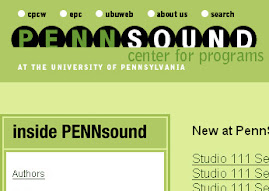



 "I teach horizontally, meaning that while I might begin with a fixed idea of what I'm going to teach that day, I let it drift rhizomatically way off topic, often pulling it back when it gets too far. I rely on non-fixed materials to teach this way; the whole world is at my fingertips. Should I go off on a tangent about John and Rauschenberg and their love relationship as expressed in Rauschenberg's bed, an image of that bed is always a click away. From there, we can head anywhere into the non-fixed universe, be it film, text or sound. And of course, that always takes us elsewhere. As Cage says, 'We are getting nowhere fast.'"
"I teach horizontally, meaning that while I might begin with a fixed idea of what I'm going to teach that day, I let it drift rhizomatically way off topic, often pulling it back when it gets too far. I rely on non-fixed materials to teach this way; the whole world is at my fingertips. Should I go off on a tangent about John and Rauschenberg and their love relationship as expressed in Rauschenberg's bed, an image of that bed is always a click away. From there, we can head anywhere into the non-fixed universe, be it film, text or sound. And of course, that always takes us elsewhere. As Cage says, 'We are getting nowhere fast.'" 
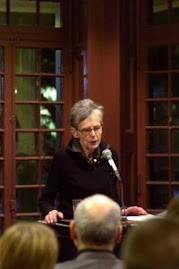
 that anyone has yet got the imaginative measure of that terrifying day six years ago. Certainly our Tolstoy has not crawled out of the rubble. The closest we have, Don DeLillo, succeeded as an essayist-journalist ("In the Ruins of the Future: Reflections on Terror and Loss in the Shadow of September,” Harper’s, December 2001) but, to my mind, failed as a novelist ("Falling Man"). One reason, perhaps, is that the remembered emotion was instantly buried under a pile of cultural junk.' - Tod Gitlin in his review of Susan Faludi's The Terror Dream (written for
that anyone has yet got the imaginative measure of that terrifying day six years ago. Certainly our Tolstoy has not crawled out of the rubble. The closest we have, Don DeLillo, succeeded as an essayist-journalist ("In the Ruins of the Future: Reflections on Terror and Loss in the Shadow of September,” Harper’s, December 2001) but, to my mind, failed as a novelist ("Falling Man"). One reason, perhaps, is that the remembered emotion was instantly buried under a pile of cultural junk.' - Tod Gitlin in his review of Susan Faludi's The Terror Dream (written for 